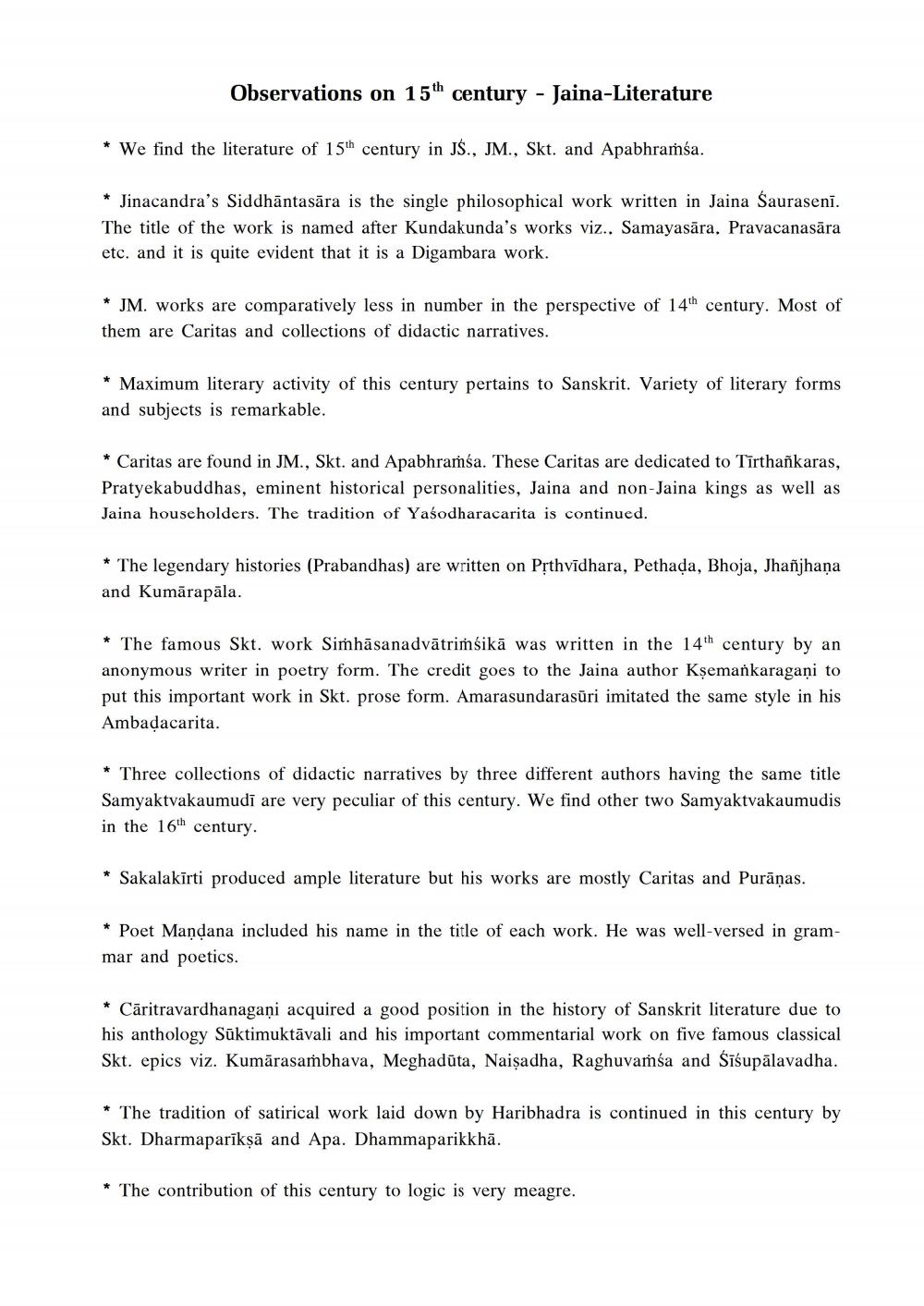________________
Observations on 15th century - Jaina-Literature
* We find the literature of 15th century in JS., JM., Skt. and Apabhramsa.
* Jinacandra's Siddhāntasāra is the single philosophical work written in Jaina Saurasenī. The title of the work is named after Kundakunda's works viz.. Samayasāra. Pravacanasāra etc. and it is quite evident that it is a Digambara work.
* JM. works are comparatively less in number in the perspective of 14th century. Most of them are Caritas and collections of didactic narratives.
* Maximum literary activity of this century pertains to Sanskrit. Variety of literary forms and subjects is remarkable.
* Caritas are found in JM., Skt. and Apabhramśa. These Caritas are dedicated to Tīrthañkaras, Pratyekabuddhas, eminent historical personalities, Jaina and non-Jaina kings as well as Jaina householders. The tradition of Yaśodharacarita is continued.
* The legendary histories (Prabandhas) are written on Pșthvīdhara, Pethada, Bhoja, Jhanjhaņa and Kumārapāla.
* The famous Skt. work Simhāsanadvātrimśikā was written in the 14th century by an anonymous writer in poetry form. The credit goes to the Jaina author Kșemankaragami to put this important work in Skt. prose form. Amarasundarasūri imitated the same style in his Ambadacarita.
* Three collections of didactic narratives by three different authors having the same title Samyaktvakaumudi are very peculiar of this century. We find other two Samyaktvakaumudis in the 16th century.
* Sakalakīrti produced ample literature but his works are mostly Caritas and Purāņas.
* Poet Mandana included his name in the title of each work. He was well-versed in grammar and poetics.
* Cāritravardhanagani acquired a good position in the history of Sanskrit literature due to his anthology Sūktimuktāvali and his important commentarial work on five famous classical Skt. epics viz. Kumārasambhava, Meghadūta, Naisadha, Raghuvamsa and Sīšupālavadha.
* The tradition of satirical work laid down by Haribhadra is continued in this century by Skt. Dharmaparīkņā and Apa. Dhammaparikkhā.
* The contribution of this century to logic is very meagre.




